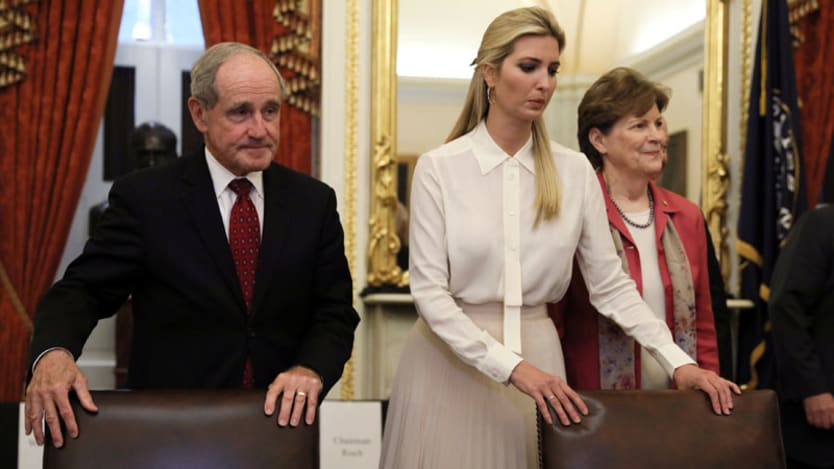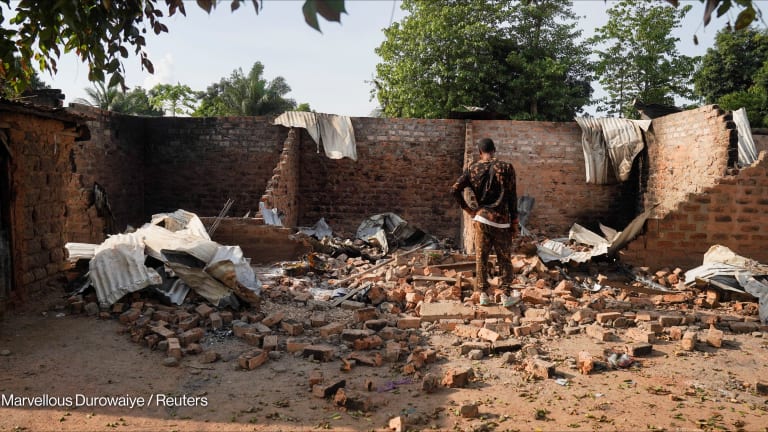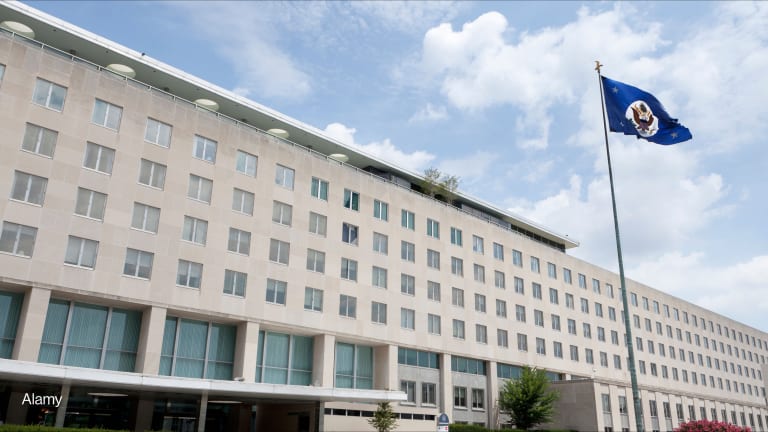Lawmakers question who will implement US Women, Peace, and Security Strategy

WASHINGTON — Legislators and advocates welcome the Trump administration’s new U.S. Strategy on Women, Peace, and Security strategy, but warn that it must extend beyond words into real action from agencies involved in U.S. national security operations.
Sen. Marco Rubio — who chaired a hearing on the topic Thursday in the Senate Foreign Relations Committee’s Subcommittee on Western Hemisphere, Transnational Crime, Civilian Security, Democracy, Human Rights, and Global Women's Issues — said Congress must exercise its oversight authority to ensure that the administration is executing the strategy as dictated by the Women, Peace and Security Act passed in 2017.
“For these strategies to work, they have to be systemized, they have to be formalized, they have to be ingrained in how we operate across the board.”
— U.S. Sen. Marco RubioRubio, a Republican from Florida, said that because so many agencies — including the U.S. Agency for International Development, Department of State, and Department of Defense — are involved in meetings regarding U.S. strategy in conflict countries, there needs to be a clear interagency coordination process that ensures involving women in peace processes and conflict resolution is a priority.
“Who is in charge of making sure that one of those things that they’re discussing and creating a plan for is this strategy? I don’t know who is in charge of implementing this,” Rubio said. “For these strategies to work, they have to be systemized, they have to be formalized, they have to be ingrained in how we operate across the board.”
Adviser to the President Ivanka Trump presented the administration’s strategy to lawmakers on Wednesday, a meeting Sen. Ben Cardin, a Democrat from Maryland and the ranking member of the subcommittee, called “extremely productive.”
The U.S. Strategy on Women, Peace, and Security — the first of its kind in the world, according to the document — recognizes the role women play in preventing and ending conflict, countering terrorism and violent extremism, and creating peace and stability when a conflict ends.
By 2023, the strategy aims to improve women’s empowerment and equality by supporting the preparation and “meaningful participation” of women in decision-making processes related to conflict; protecting women and girls’ human rights, access to humanitarian aid, and safeguarding against violence and abuse; “adjusting” U.S. international programs to improve outcomes in equality of women; and encouraging partner governments to increase capacity to improve the meaningful participation of women in peace and security processes.
Women are currently greatly underrepresented in peace and security efforts around the world: In major peace processes between 1992-2017, women were only 3% of mediators and 9% of negotiators. Research shows that involvement of women in peace processes makes them 64% less likely to fail and that peace negotiations that involve women are 35% more likely to last at least 15 years.
Q&A: USAID RED teams and working 'outside the wire'
In the wake of an article published on Devex about a USAID proposal to create "rapid expeditionary development" teams, we catch up with an author of the report that explored options for putting aid workers "outside the wire."
Jamille Bigio, former director of human rights and gender at the National Security Council, told lawmakers that some training on incorporating women into conflict resolution for American personnel working on peace and security issues does currently exist, but it is not widespread nor intensive enough to be effective in changing the way the U.S. interacts with women in such contexts.
“Hopefully the implementation plans [of the strategy] will include attention to more training opportunities at State, USAID, DOD, across the intelligence community, Department of Homeland Security, all of the agencies that are implicated to make sure that staff actually have the skills to put the commitments into action,” Bigio said at the hearing, stressing that the “lofty goals” of the strategy must be converted into concrete policies and programs.
USAID Administrator Mark Green said his agency will work with other U.S. government departments as well as international and local partners, the private sector, faith-based organizations, and women’s organizations to advance the agenda.
“USAID is committed to full implementation of the WPS Strategy because we know that investing in women's leadership and empowerment can help break cycles of conflict and violence that threaten global security and undermine development progress,” Green said this week in a statement.
Search for articles
Most Read
- 1
- 2
- 3
- 4
- 5








